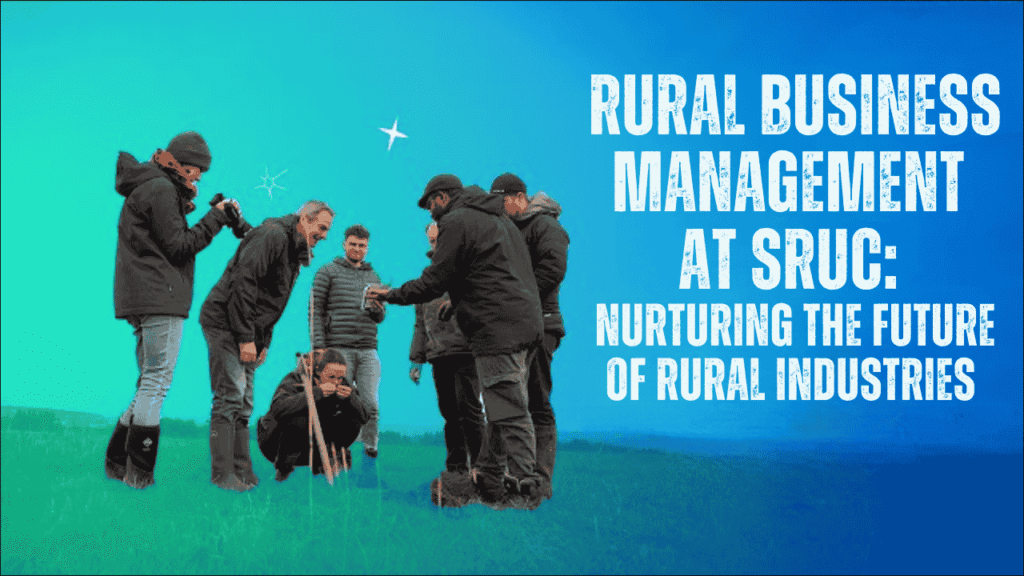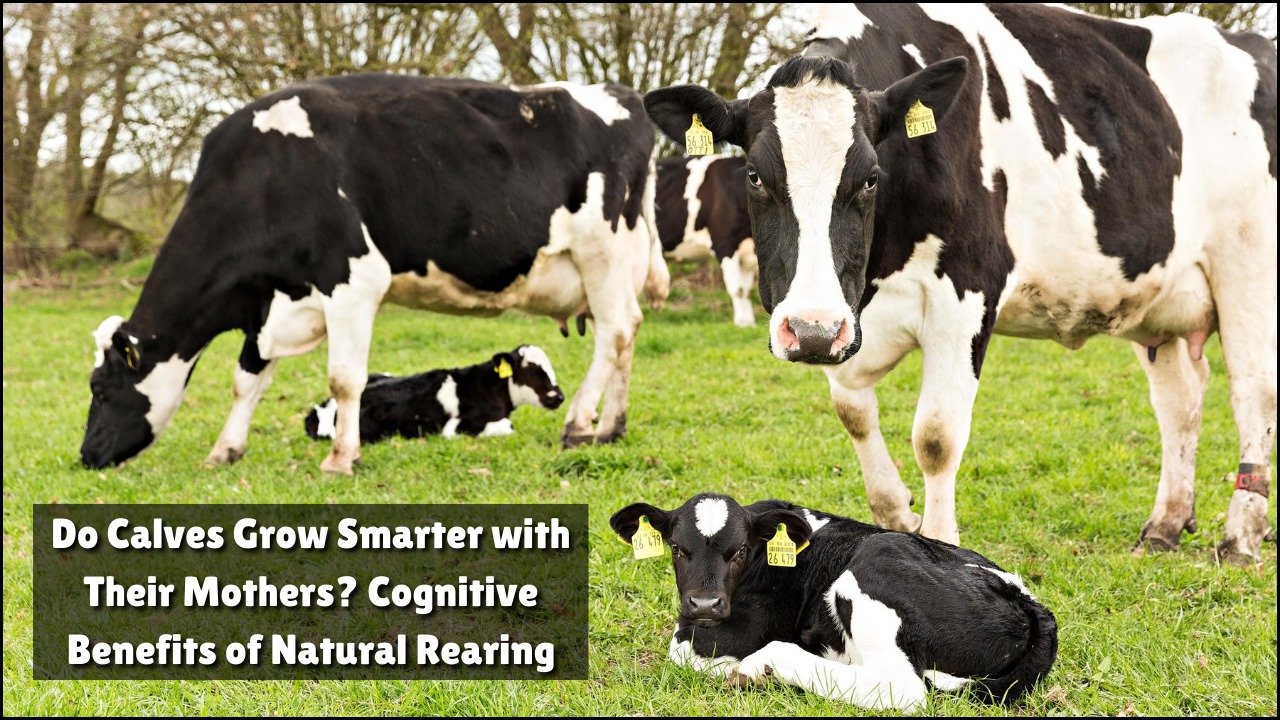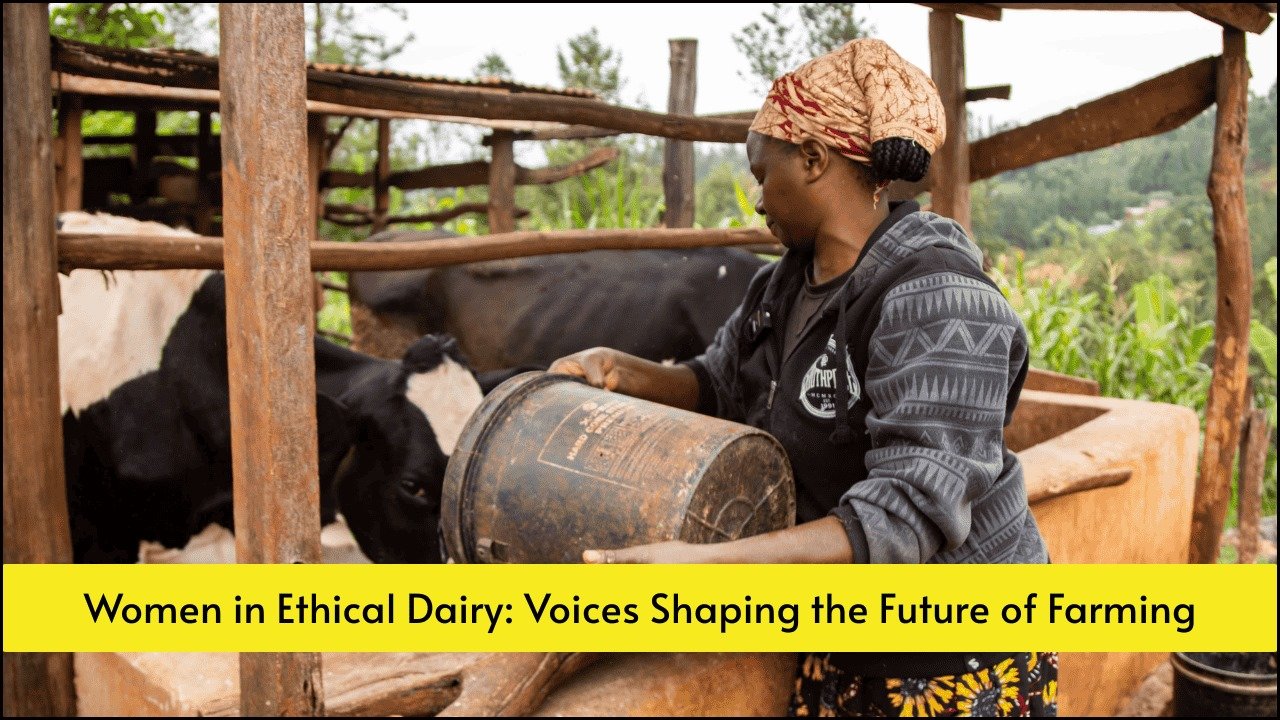
SRUC (Scotland’s Rural College) offers a unique and focused approach to business education tailored specifically to rural industries. Rural Business Management at SRUC combines core business disciplines with sector-specific expertise, creating a powerful academic and practical foundation. This program prepares learners to drive innovation, sustainability, and growth in rural economies across the UK and beyond.
Table of Contents
Key Features of Rural Business Management at SRUC
- Industry-Focused Curriculum
- Courses are developed in collaboration with rural industry stakeholders.
- Modules are aligned with the demands of employers in agriculture, food production, land management, and more.
- Specialist Knowledge
- Subjects cover estate and land management, animal health industries, and rural supply chains.
- Integration of rural-specific knowledge ensures sector readiness.
- Business Core Modules
- Entrepreneurship
- Marketing and digital strategy
- Finance and economics
- Human resource management
- IT and data systems
- RICS Accreditation
- The Rural Business Management degree offers an accredited stream by the Royal Institution of Chartered Surveyors (RICS).
- Ideal for careers in estate agencies and land consultancy.
- Professional Pathways
- Graduates from the RICS stream can progress to the APC (Assessment of Professional Competence).
- Eligibility for Chartered Surveyor status opens high-level career opportunities.
Specializations and Learning Opportunities
- Land and Estate Management
- Focuses on sustainable estate planning, tenancy law, and rural diversification.
- Prepares students for private, public, and third-sector roles in land use policy and consultancy.
- Agricultural Business Operations
- In-depth understanding of the agricultural supply chain and food marketing.
- Equips learners to manage farm enterprises and agribusiness firms.
- Animal Sector Support
- Courses support veterinary practice management and animal health business models.
- Offers cross-disciplinary skills for working with livestock-based industries.
Benefits of Studying at SRUC
- Practical Learning
- Case studies, field visits, and hands-on projects make the learning relevant.
- Industry placements and internships give students real-world experience.
- Career Readiness
- Emphasis on entrepreneurship equips graduates to start their ventures.
- Strong focus on employability and networking within rural sectors.
- Virtual Learning Tools
- SRUC’s Virtual Experience showcases student life, projects, and facilities.
- Digital resources support flexible and enriched learning environments.
Comparison of Course Elements
| Component | Details |
|---|---|
| Core Business Modules | Entrepreneurship, HRM, Marketing, Finance, IT |
| Specialist Rural Modules | Agriculture, Estate Management, Animal Sector Practices |
| Accreditation | RICS stream available |
| Career Pathways | Estate Agent, Land Consultant, Agribusiness Manager, Chartered Surveyor |
| Practical Opportunities | Work placements, virtual learning tools, and student projects |
| Eligibility for Professional Status | Graduates of the RICS stream can pursue APC and Chartered Surveyor status |
Learning Outcomes
- Strategic Thinking
- Ability to apply business principles to real rural scenarios.
- Develop sustainable strategies for land use, farming, and rural enterprise.
- Leadership and Management
- Build leadership confidence for managing rural teams and projects.
- Enhance interpersonal and communication skills through collaborative assignments.
- Analytical Proficiency
- Use financial and market data to make business decisions.
- Understand policy and legal frameworks affecting rural businesses.
Career Prospects after Graduation
| Career Option | Role Description |
|---|---|
| Agribusiness Manager | Oversees agricultural enterprises, manages finance, and plans operations. |
| Land & Estate Agent | Provides property valuation, land sales, and estate planning services. |
| Chartered Surveyor | Offers expert advice on land, property, and environmental issues. |
| Rural Consultant | Supports rural clients in business strategy, policy compliance, and planning. |
| Farm Enterprise Director | Leads innovation and diversification in farm-based businesses. |
Why Choose SRUC for Business Studies
- Tailored Learning
- Programs are designed to reflect the complexity and scope of rural industries.
- Flexible options allow students to focus on specific interest areas.
- Recognition and Prestige
- The RICS-accredited pathway gives graduates an edge in competitive job markets.
- SRUC’s reputation in rural education enhances employability and networking.
- Student Support
- Career guidance and mentorship throughout the degree journey.
- Opportunities to engage with alumni and rural industry experts.
Specialized Modules in Rural Business Management
| Module Title | Focus Area |
|---|---|
| Rural Policy and Planning | Governance, regulation, and sustainable development |
| Financial Management for Rural Firms | Budgeting, investment, and risk management |
| Rural Marketing Strategies | Product positioning and branding in rural contexts |
| Entrepreneurship in the Countryside | Innovation and startup ventures in rural areas |
| Land Law and Tenure Systems | Legal frameworks governing rural property |
| Supply Chains in the Agri-Food Sector | Logistics, processing, and retail in food production |
Student Experience at SRUC
- Immersive Campus Life
- SRUC campuses provide access to agricultural facilities and demo farms.
- Students gain a real feel for working in and with rural communities.
- Digital Engagement
- Online modules and the Virtual Experience platform broaden access.
- Multimedia content enhances learning across geographies.
- Community Integration
- Programs emphasize social responsibility and rural development.
- Students are encouraged to contribute ideas that benefit local economies.
Moving Forward
Rural Business Management at SRUC is more than a degree—it’s a pathway into the heart of rural transformation. With its blend of core business studies and rural sector expertise, this program creates leaders equipped to handle the evolving challenges and opportunities in countryside economies. Graduates leave with knowledge, accreditation, and confidence to drive innovation, policy, and sustainability in rural industries.






